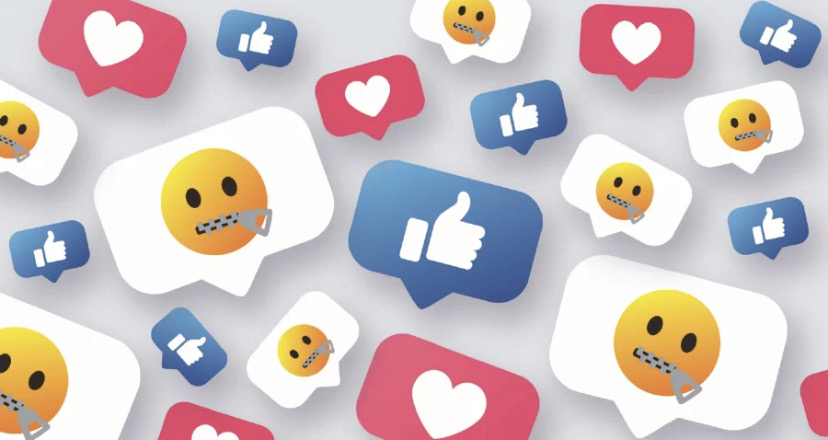
Social media has become such a huge aspect of our social interactions, jobs and daily life, but behind social media is the opportunity to spread awareness on current social issues. With the ongoing war between Israel and Hamas or sexual assault being brought to light, many people have been feeling a sense of frustration on how the media censors their truth.
According to the Pew Research Center, most Americans think social media sites censor political views.
This has become a particularly pointed issue in politics — with critics accusing tech firms of political bias and stifling open discussion. Amid these concerns, a Pew Research Center survey conducted in June finds that roughly three-quarters of U.S. adults say it is very (37%) or somewhat (36%) likely that social media sites intentionally censor political viewpoints that they find objectionable. Just 25% believe this is not likely the case.
With social media’s huge impact on discourse and curating trends, many people can feel that there is a bias among certain sites, which goes against their First Amendment rights. Meanwhile, others think it can be helpful to censor certain topics.
Killa Kelly, mother of two and a tax preparer, believes that children should be protected from social media.
“I feel like they should just make the age for social media either 18 or 21 not for a 13-year-old,” Kelly said. “It’s only helpful when you censor social media when you keep in mind that children are on there. You don’t want your children seeing someone getting shot in Palestine or seeing Donald Trump saying something crazy against another race.”
Jada Jones, a second-year music education major at FAMU, thinks censorship is harmful.
“I think social media is a place where everyone should be allowed to give their opinions freely. Certain information is definitely censored, and I think it can be harmful in the current political climate that we are in,” she said.
With a vast amount of information available on social media, it can be hard to determine what is credible and what should be censored. Although First Amendment concerns have been raised, social media companies ultimately have more freedom to restrict certain content. By using various social media platforms users have agreed to the terms of service that have been placed on the app/site.
The government has also taken a keen interest in social media censorship, due to its vital role in our society. Several laws have been considered to regulate social media corporations such as Twitter and Facebook.
Former President Donald Trump’s banning off Twitter sparked the conversation on social media censorship and the First Amendment.
As social media expands, the concern and question of social media censorship will eventually have to be addressed within the law and social protocols. This ongoing and complex situation bares a vital way information will be exchanged and communicated within the general public.